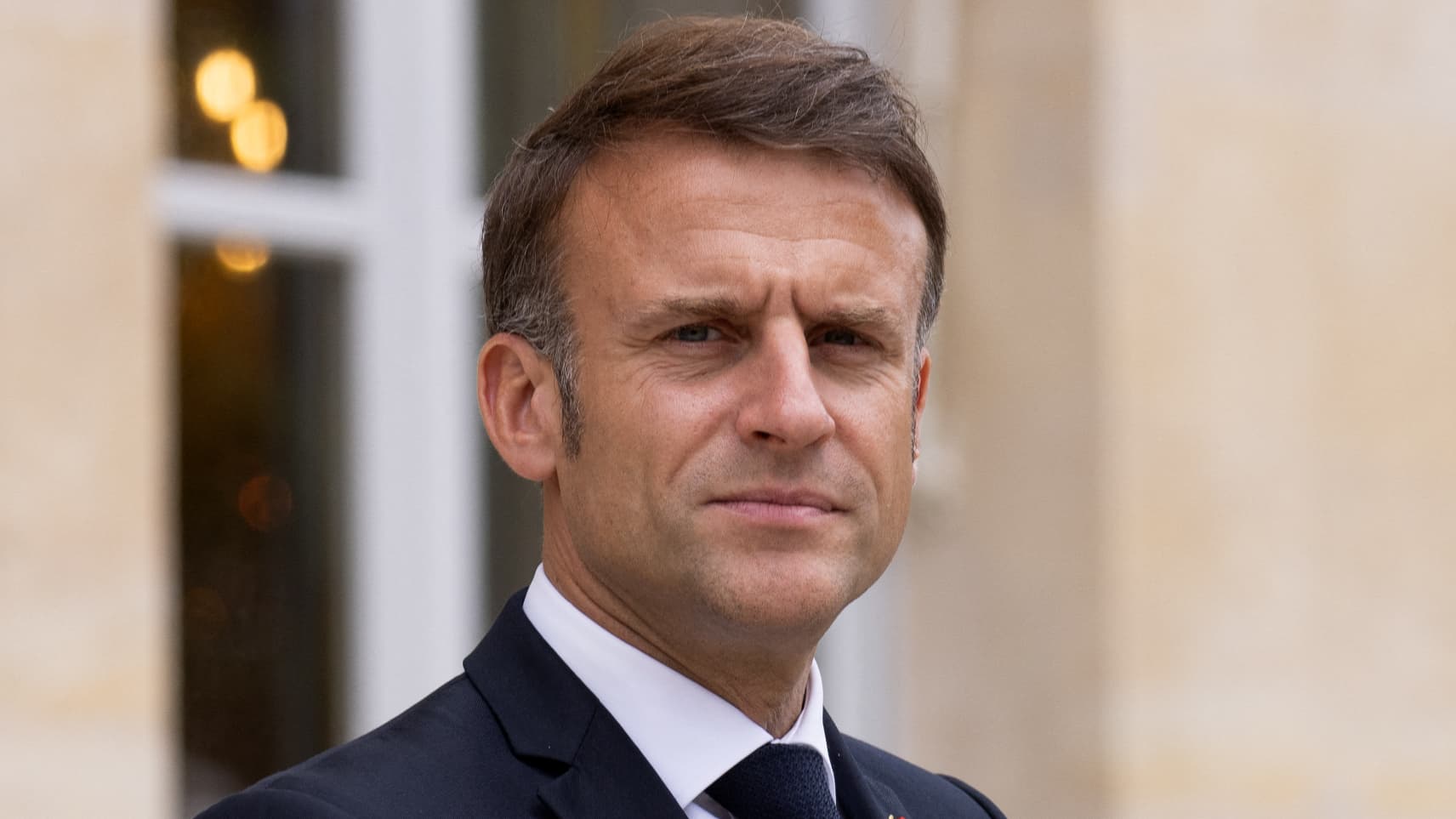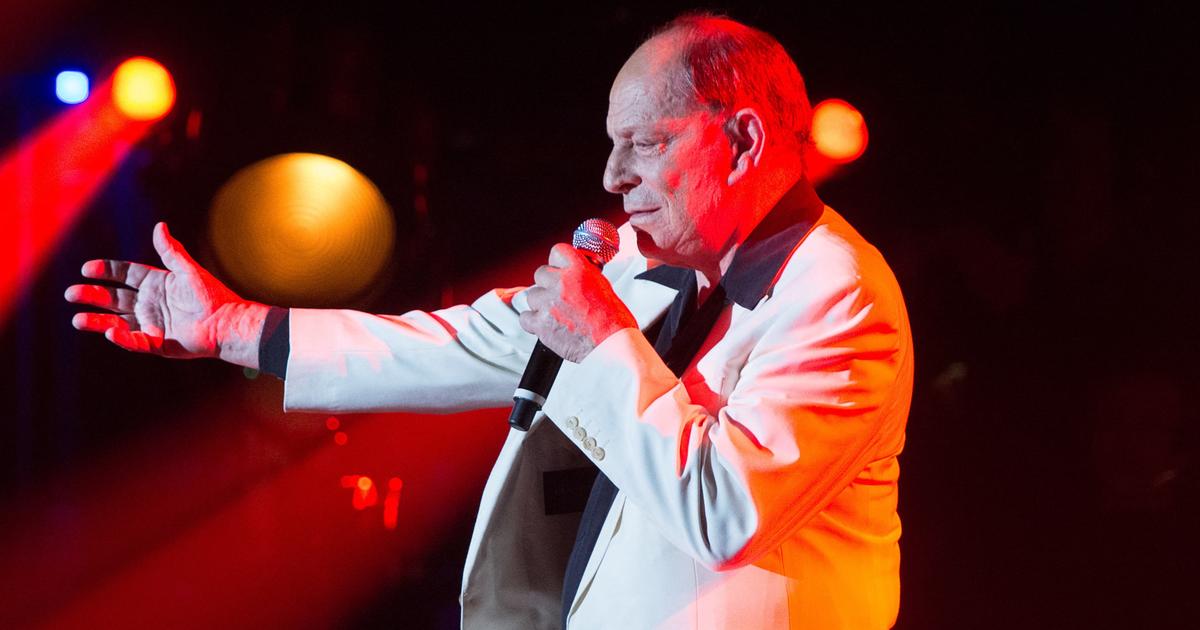Table of Contents
Emmanuel Macron is traveling to Bas-Rhin this Saturday, November 23, to mark the 80th anniversary of the Liberation of Strasbourg from Nazi Germany and will pay tribute to the Alsatian resistance, including the historian Marc Bloch.
Emmanuel Macron marks the 80th anniversary of the liberation of Strasbourg from the Nazi yoke on Saturday with a tribute to the Alsatian resistance, to the forcibly incorporated and to the historian Marc Bloch who could be pantheonized.
The Head of State, who is continuing a long memorial cycle around the 80th anniversary of the Liberation of France and the end of the Second World War, is expected at 11:20 a.m. at Place Broglie for a military ceremony, before a speech at the university.
He will then go to the former Nazi concentration camp of Natzweiler-Struthof, the only one erected on French territory, around sixty kilometers from Strasbourg, while Alsace was de facto annexed by the Third Reich.
Place Broglie, he will salute the memory of General Leclerc and the men of the Second Armored Division, liberators of Strasbourg on November 23, 1944, after having sworn three years earlier during the oath of Koufra (Libya) to fight until that the French flag flies over the capital of Alsace. In the blink of an eye, the colors of France will once again be raised on the spire of Strasbourg Cathedral during the ceremony.
“Despite us”
Emmanuel Macron will then speak at the University Palace in Strasbourg. “This will be an opportunity to discuss the resistance of the Alsatians, the liberation of the territory and the always delicate subject of the forcibly incorporated from Alsace-Moselle” into the Wehrmacht, indicated the Elysée.
More than 130,000 Alsatians and Mosellans, considered German after the annexation of these territories, had to join the German army and 12,000 never returned, a tragedy which remains painful in the region, 80 years after the end of the war.
For a very long time, the “Despite us”, associated for some with one of the worst massacres of civilians committed by the Nazis in Western Europe in Oradour-sur-Glane (Haute-Vienne) in 1944, remained a relatively taboo subject.
“After the war, we will above all promote heroic, resistant memory, everything that can rebuild the cement of France. And in all this history, the Despite Us, it’s a bit of a stain, it’s not glorious, that does not allow us to build a memory that will be national”, points out historian Christophe Woehrle.
“80 years later, we must put words and actions, we must move away from feelings” of shame and “non-recognition”, believes the mayor of Strasbourg Jeanne Barseghian who calls on the president to speak out in favor of compensation for orphans of “Despite us”.
Marc Bloch at the Pantheon?
Emmanuel Macron could also announce the entry into the Pantheon of the academic and resistance fighter Marc Bloch, arrested by the Gestapo and shot three months later in 1944, according to several sources at AFP. At the end of the speech, he will also present the Legion of Honor to his son Daniel Bloch.
Professor of Middle Ages history at the University of Strasbourg from 1919 to 1936, Marc Bloch profoundly renewed the field of historical research by extending it to sociology, geography, psychology and economics. In 1929, he notably founded with Lucien Febvre the journal “Annales d’histoire économique et sociale”, which had an academic resonance throughout the world.
Captain and Croix de Guerre in 1914-1918, mobilized again in 1939, Marc Bloch joined the resistance at the turn of 1942/43. He was arrested in Lyon on March 8, 1944, imprisoned and tortured in Montluc prison, then shot on June 16 with 29 of his comrades.
Between France and Germany
At the Struthof, Emmanuel Macron will rekindle the flame at the foot of the Memorial to the heroes and martyrs of the deportation, after a “sober and solemn visit” to the camp where 17,000 people perished.
The Head of State will also visit the Alsace-Moselle Memorial Museum in Schirmeck, which traces the history of the region’s inhabitants, tossed between France and Germany for decades between 1870 and 1945, and pays tribute to the 36,000 Alsatians and Mosellans who died during the war.
## World Today News: 80th Anniversary of Strasbourg’s Liberation
**Welcome to World Today News’ special interview commemorating the 80th anniversary of Strasbourg’s Liberation from Nazi Germany.**
We are joined today by two distinguished guests:
* **Dr. Anne Dupont,** Historian specializing in the history of Alsace during World War II.
* **Mr. Jean Martin,** Grandson of a “Despite Us” (Alsatian conscripted into the Wehrmacht) who advocates for their recognition and support.
**I. Liberation and Remembrance:**
* **Dr. Dupont,** the article mentions President Macron’s visit to Place Broglie and the symbolic raising of the French flag. How significant is this act of remembrance 80 years after the liberation? What are its symbolic implications for Strasbourg and France as a whole?
* **Mr. Martin,** President Macron will also be speaking at the University Palace focusing on the Alsatian resistence. How important is it for understanding the full tapestry of the liberation struggle to recognize the complex roles played by different groups within Alsace during this tumultuous period?
**II. The “Despite Us”: A Necessary Debate:**
* **Dr. Dupont,** the article highlights the “Despite Us” phenomenon as a sensitive and complex aspect of the war’s legacy. Why has it been a difficult topic to approach historically?
* **Mr. Martin,** you advocate for broader recognition and support for the descendants of the “Despite Us.” What specific steps do you believe the French government should take to address this historical injustice?
* **Both Guests:** How can we best balance the need to celebrate the courage and sacrifice of the resistence with the recognition of the suffering and forced complicity of the “Despite Us”? What lessons can be learned from this historical experience for contemporary times?
**III. Honoring a Fallen Historian:**
* **Dr. Dupont,** the article suggests President Macron may announce the entry of Marc Bloch into the Pantheon. Why is it fitting to consider Marc Bloch for this honor, particularly in the context of this anniversary?
* **Both Guests:** How can the legacy of Marc Bloch, a historian who devoted his life to understanding the past, help us to navigate the complexities of historical memory and its impact on the present?
**IV. Bridges Between France and Germany:**
* **Dr. Dupont,** the article mentions President Macron’s visit to the Struthof concentration camp, a stark reminder of the Nazi regime’s crimes. What message do you think President Macron will be trying to convey through this visit?
* **Both Guests:** 80 years after the解放, how can we ensure that the lessons learned from this dark chapter in European history continue to inform our approach to reconciliation, peacebuilding, and the prevention of future atrocities?
**Thank you, Dr. Dupont and Mr. Martin, for sharing your valuable insights with us today. ** We hope this discussion contributes to a deeper understanding of this significant historical anniversary and its implications for our present and future.


